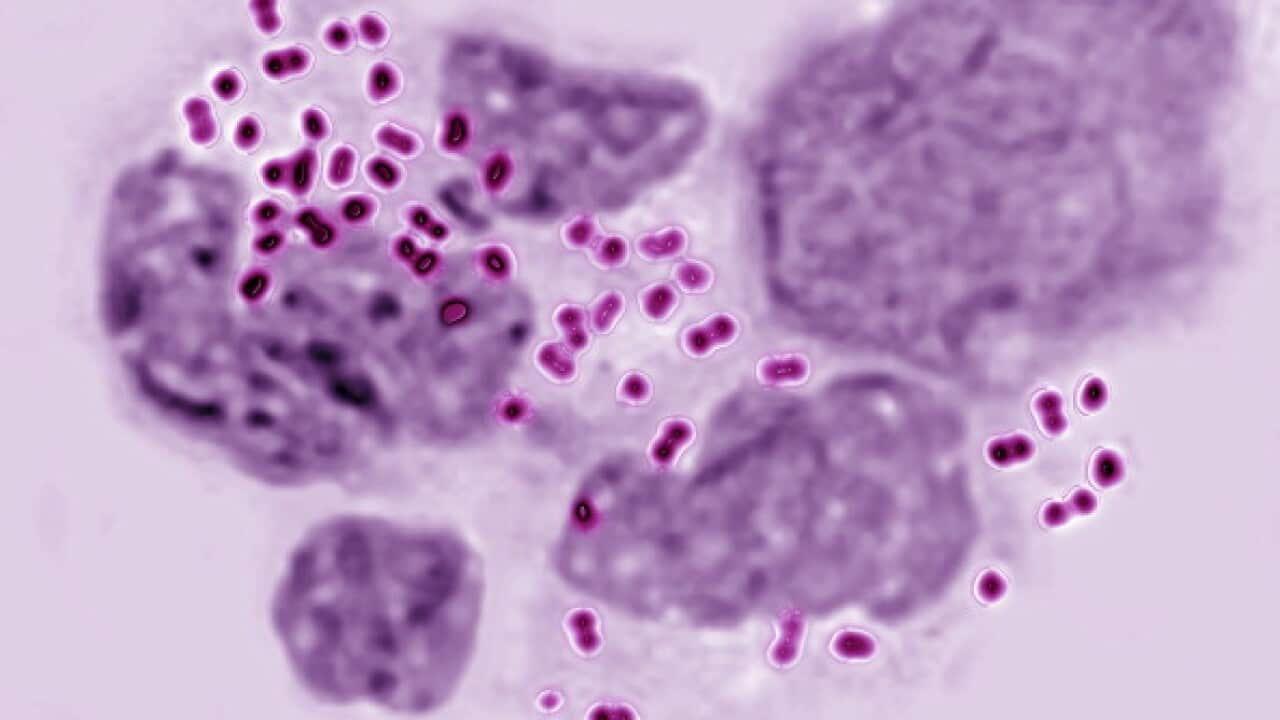A man in the UK has caught the world's worst case of so-called "super-gonorrhoea" after a sexual encounter in Southeast Asia.
Public Health England officials released a report on Thursday claiming it was the first reported case of the infection that could not be cured with the regular antibiotics typically prescribed to treat it.
Gonorrhoea is usually treated with a combination of antibiotics azithromycin and ceftriaxone.
"This is the first time a case has displayed such high-level resistance to both (azithromycin and ceftriaxone) and to most other commonly used antibiotics," Dr Gwenda Hughes from Public Health England told the BBC.
RELATED READING

Australian gonorrhoea cases soar by 63 per cent
"We are following up this case to ensure that the infection was effectively treated with other options and the risk of any onward transmission is minimised."
The man - who has not been identified - reportedly has a regular partner in the UK.
Gonorrhoea is a sexually transmitted infection and if left untreated can cause chronic problems, including infertility.
Its symptoms include unusual discharge from the genitals, pain while urinating and pain or tenderness in the lower abdominal region for women, or in testicles for men. The infection is spread through unprotected vaginal, oral or anal sex.
Complications of gonorrhoea disproportionally affect women, including pelvic inflammatory disease, ectopic pregnancy and infertility, as well as an increased risk of HIV.
The infected man is now trying different antibiotics to see whether they are an effective treatment. Whether this is successful will be known within the next month.
'Smart' bacteria concerning for health experts
The World Health Organization (WHO) has long been concerned about antibiotic-resistant gonorrhoea.
A recent WHO study said that data from 77 countries show that antibiotic resistance is making gonorrhoea much harder to treat.
"The bacteria that cause gonorrhoea are particularly smart. Every time we use a new class of antibiotics to treat the infection, the bacteria evolve to resist them," WHO Doctor Teodora Wi said.
Each year, an estimated 78 million people are infected with gonorrhoea.
Gonorrhoea on the rise in Australia
A 2017 report by the Kirby Institute showed diagnoses of gonorrhoea had increased in Australia by 63 per cent since 2011.
Associate Professor Rebecca Guy, head of the Surveillance, Evaluation and Research Program at the Kirby Institute said reducing the rates of STIs among Australia's young adults must be a priority of national awareness campaigns.
"Up until recently, gonorrhoea had been uncommon in young heterosexual people living in major cities. Rising rates in this group highlight the need for initiatives to raise awareness among clinicians and young people about the importance of testing," Prof Guy said.
Material from The World Health Organization said gonorrhoea "can be prevented through safer sexual behaviour, in particular, consistent and correct condom use".
Additional reporting: AAP
Share

